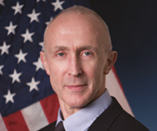FST JOURNAL
Update
Update
UK launches strategy to boost cyber security and resilience
The UK Government has launched a National Cyber Strategy. The global expansion of cyberspace is changing the way we live, work and communicate, and transforming the critical systems we rely on in areas such as finance, energy, food distribution, healthcare and transport. The scale and speed of this change is also unleashing unprecedented complexity, instability and risk.
The UK’s new National Cyber Strategy is designed to strengthen cyber security capability in order to pursue and promote UK interests with confidence. It will strengthen the country’s ability to act in cyberspace, while at the same time enhancing the opportunities to influence and shape tomorrow’s technologies so they are safe, secure and open.
To do this the strategy is built around five core pillars:
- Strengthening the UK cyber ecosystem, investing in people and skills and deepening the partnership between Government, academia and industry;
- Building a resilient and prosperous digital UK, reducing cyber risks so businesses can maximise the economic benefits of digital technology and citizens are secure online and confident that their data is protected;
- Taking the lead in the technologies vital to cyber power, building industrial capability and developing frameworks to secure future technologies;
- Advancing UK global leadership and influence for a more secure, prosperous and open international order, working with Government and industry partners and sharing the expertise that underpins UK cyber power;
- Detecting, disrupting and deterring our adversaries to enhance UK security in and through cyberspace, making more integrated, creative and routine use of the UK’s full spectrum of levers.
www.gov.uk/government/publications/national-cyber-strategy-2022
First head of ARIA appointed
Dr Peter Highnam has been appointed as the first CEO of the Advanced Research and Invention Agency (ARIA). He joins from the US Defense Advanced Research Projects Agency (DARPA).
Backed by £800 million of public money, the agency has been established to empower exceptional scientists to focus on high-risk projects at the frontier of discovery and innovation that could transform people’s lives for the better.
Born in the UK, Dr Highnam brings a wealth of experience with him, as he joins ARIA from the USA’s research agency DARPA where he has served as Deputy Director since February 2018.
 Peter Highnam: takes up ARIA post in May
Peter Highnam: takes up ARIA post in May
He will take up his post as ARIA’s first CEO on 3 May 2022, for a fixed term of five years. ARIA is based on models that have proved successful in other countries, in particular the influential US Advanced Research Projects Agency (ARPA) model. This was instrumental in creating transformational technologies such as the internet and GPS, changing the way people live and work, while increasing productivity and economic growth.
UK funds marine environment protection
Crick Institute, becomes a Companion of Honour. Dr Vivienne Cox, Chair of The UK is committing £2 million to support the creation of the world’s biggest transboundary marine protected area – the Eastern Tropical Marine Corridor. It aims to protect some of the world’s most important and biodiverse marine environments in the Eastern Pacific, including key migratory routes for sea turtles, whales, sharks, and rays.
At COP26, Costa Rica, Colombia, Ecuador, and Panama announced they are working together to expand and connect marine protection covering over 500,000 km2 of ocean. The marine corridor stretches from the rich breeding and feeding grounds around Malpelo Island, the Cocos Ridge, and the Cordillera de Coiba seamounts, to the Galapagos Islands that were the inspiration for Charles Darwin’s theory of evolution.
The UK will invest an initial £2 million of aid through the World Bank’s PROBLUE fund, and deploy marine experts to provide technical assistance through the UK’s Ocean Country Partnership Programme.
Science boost in New Year’s Honours 2022
Science features strongly in the New Year’s Honours List. Government Chief Scientific Adviser Sir Paul Vallance and Chief Medical Officer Professor Chris Whitty are both made Knights Commander of the Order of the Bath. They are perhaps the two most publicly-recognisable scientists in Britain today. Also honoured for their service to public health are the Chief Executive of the UK Health Security Agency Dr Jenny Harries who becomes Dame Commander of the British Empire and Dr Jonathan Van Tam, Deputy Chief Medical Officer, who is knighted. The Chief Medical Officers of the Scottish and Welsh Governments, Professor Gregor Smith and Dr Francis Atherton, are also knighted.
Sir Paul Nurse, Chief Executive of the the Rosalind Franklin Institute, is made Dame Commander of the British Empire, as is Dr June Raine, Chief Executive of the MHRA.
Science advice to Government is also recognised. Professor Anthony Finkelstein, formerly Chief Scientific Adviser (CSA) for National Security, and Professor Robin Grimes, lately CSA Ministry of Defence Nuclear, are both knighted. Professor Philip Blythe, CSA at the Department of Transport, receives a CBE, as does climate scientist Professor Myles Allen.
